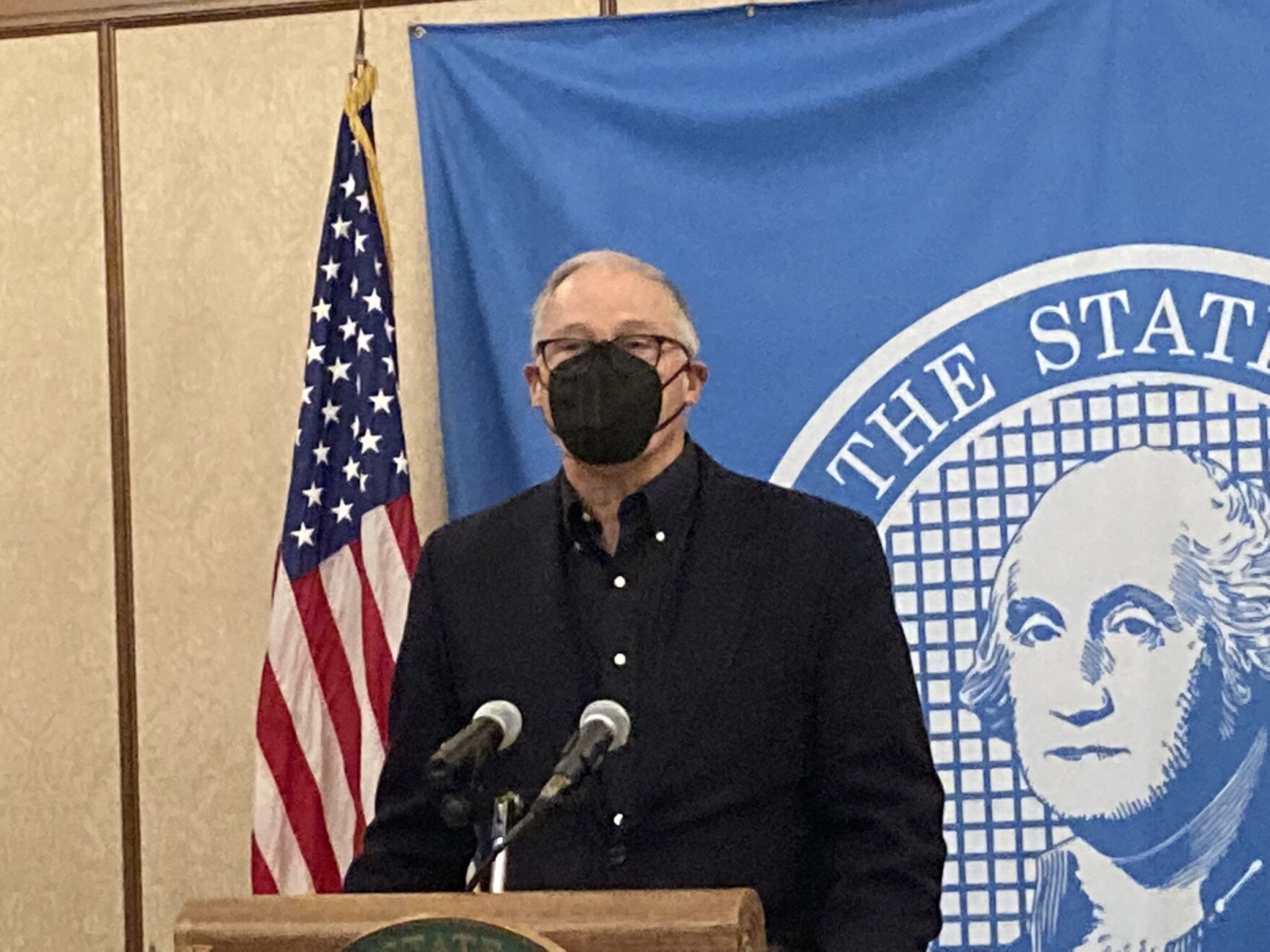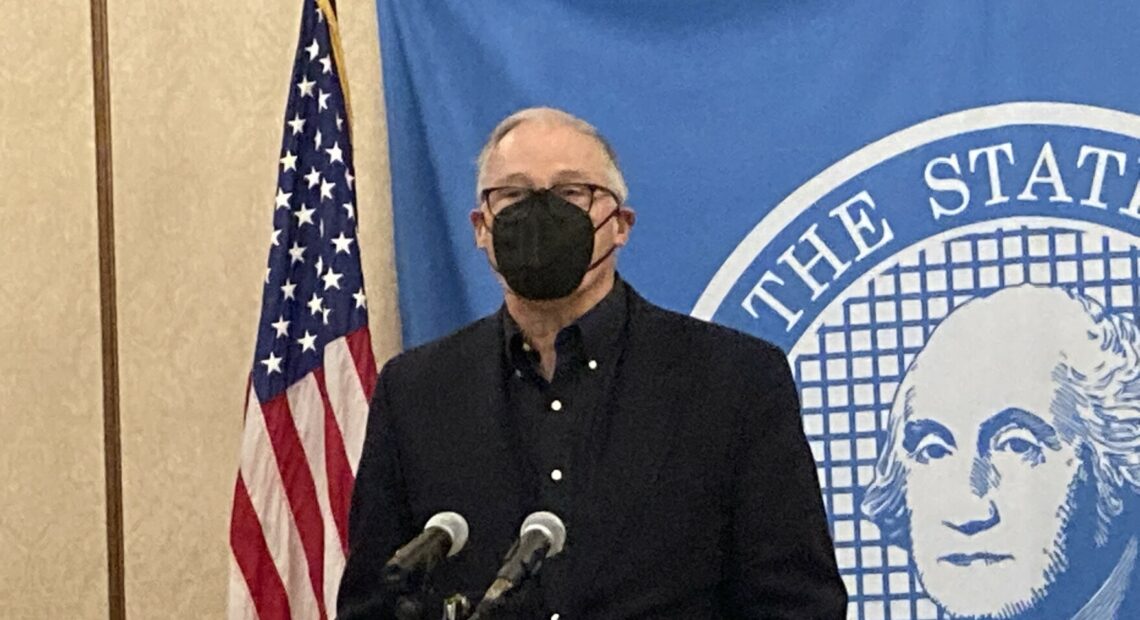
Inslee Offers Support For Temporary Delay In New Payroll Tax For Long-Term Care Program
Read
Washington Gov. Jay Inslee said Thursday that he would support a delay in the implementation of a new payroll tax to fund a first-in-the-nation long-term care benefit program called WA Cares.
“If the Legislature has a meaningful way to do that, I think it makes sense,” Inslee said during a news conference at the Capitol.
On Wednesday, Democratic leaders in the state Senate sent Inslee a letter urging him to delay implementation of the WA Cares program for one year.
“This delay will allow the legislature time during the 2022 legislative session to engage the public in a transparent, deliberative process to address concerns that have been raised with the WA Cares Fund without being limited by a premium assessment that is already in progress,” the legislators wrote.
The letter writers also said that while they continue to support the WA Cares program “now is not the time to add a payroll deduction” because of the ongoing pandemic.
“We know Washingtonians face challenges with housing, childcare and other costs during this recovery and we do not want to add another at this difficult time,” the letter said.
But Inslee said Thursday he doesn’t have the authority to halt the program using his COVID-19 emergency powers. Instead, he said, lawyers were looking at whether the collection of the payroll tax, which is scheduled to begin in January, could be delayed until April.
“I am sensitive and empathetic to the need for some changes in this bill,” Inslee said.
Inslee did not rule out the possibility of a special session of the Legislature before January to halt implementation of the tax.
House Majority Leader Pat Sullivan, also a Democrat, said Thursday it would be “extremely difficult” to pull together a special session before the end of the year. Still, he expressed openness to a delay in the implementation of the tax to address concerns with the program.
Among the issues that have been raised is that border-crossers who work in Washington, but live in Oregon or Idaho, will pay the tax but not be able to collect the benefit because it’s not portable. Another source of criticism is that some people nearing retirement will have pay into the program, but won’t qualify for the benefit because it takes several years to vest.
“A delay would give us more time to address those issues and other concerns that have been raised by constituents,” Sullivan said.
However, a coalition advocating for the WA Cares Fund was quick to criticize talk of any delay.
“Delaying WA Cares would harm an estimated 38,000 disabled, elderly, or seriously ill people who are desperate for long-term care benefits in 2025,” said Jessica Gomez with Washingtonians for a Responsible Future in a statement.
Under WA Cares, workers will pay a $0.58 tax on every hundred dollars of earnings. Beginning in 2025, workers who qualify could access long-term care services with a lifetime maximum benefit of $36,500.
Related Stories:
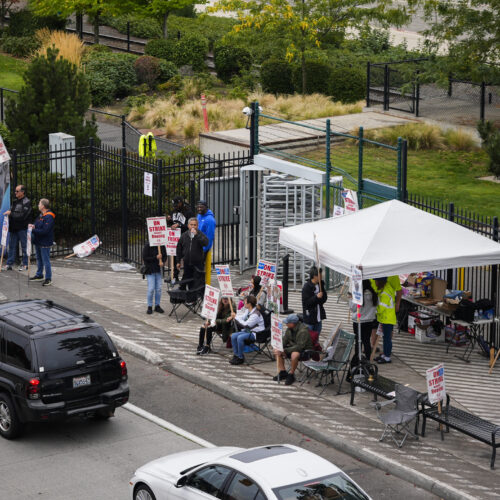
Striking workers in Washington could get access to unemployment claims if bill passes
A proposed bill that would give striking workers some access to the state’s unemployment benefits is getting closer to becoming law in Washington.
Majority lawmakers in the House Committee on Labor & Workplace Standards moved the bill out of committee on Friday, with a recommendation to pass it. This, after the bill narrowly passed the senate with 28 yeas and 21 nays earlier this month.
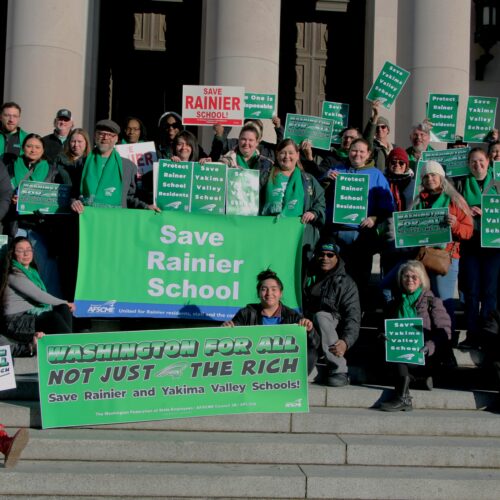
State considers closure of residential facilities for people with disabilities
Ever since he started working at Rainier School in Buckley, Washington, Willis McNabb has been hearing that the state was going to close it. This time, he said it feels more real.
“I’ve never been so worried as I am today,” McNabb said.
Since 1991, McNabb has worked at Rainier, which gives people with intellectual and developmental disabilities a place to find community, learn, work and receive comprehensive health treatment.
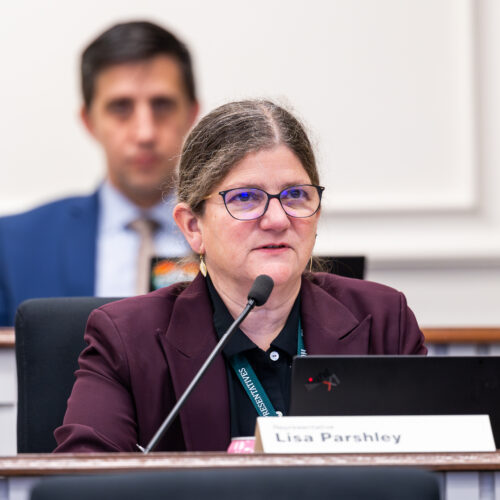
Washington bills attempt to give public workers power to bargain on AI
There are only so many things employees get to have a say over in their jobs. Which laptops or messaging app your office uses might not be your call.
For a while, decisions on the use of technology in the workplace have been up to management for public workers in Washington state, thanks to a law passed in 2002. But now, some lawmakers want to pass an exemption that would allow public sector employees to bargain on one broad and ever-changing technology — artificial intelligence.

